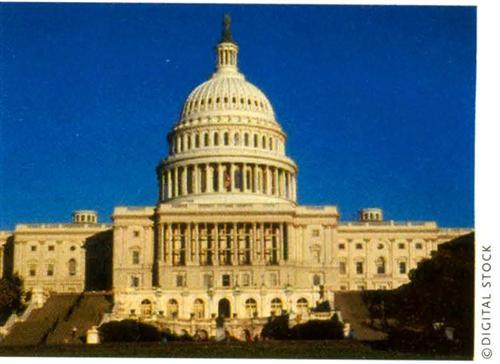Sign up for the Family Tree Newsletter Plus, you’ll receive our 10 Essential Genealogy Research Forms PDF as a special thank you!
Get Your Free Genealogy Forms
"*" indicates required fields
Searchable online database sites such as Ancestry.com <Ancestry.com > and FamilySearch <www.familysearch.org> have made genealogy one of the hottest topics on the Internet. But what if these sites actually owned the millions of facts they contain — facts about your ancestors?
That could happen, say critics of the Database and Collections of Information Misappropriation Act (HR 3261). The bill, sponsored by Rep. Howard Coble (NC), would make it a crime to redistribute a “quantitatively substantial” portion of the information contained in a database (except federal government databases) that was generated, compiled or maintained by another person.
The bill’s supporters — including the Software and Information Industry Association and Reed Elsevier (publisher of the LexisNexis legal database) — say it would protect companies from cheaters who extract information from databases and sell it. If passed, the act would benefit consumers like you because companies could share more information without fear that their work will be stolen.
But organizations such as Amazon.com <www.amazon.com> and the US Chamber of Commerce think the bill would hinder your access to information because database companies could claim ownership of pre-existing facts. Since the Database Misappropriation Act provides no expiration date, as US copyright law does, companies would “own” the information forever.
“If it’s a fact that my grandfather grew up in Lithuania, and that’s in an online database, is that a copyrightable fact?” asks Art Brodsky, spokesman for Public Knowledge <www.publicknowledge.org>, a public-interest advocacy group. He says the act is so broadly written — in particular, it doesn’t say how much of a database is considered a substantial portion — that resulting lawsuits could have unintended consequences.
For example, should the bill become law, pedigree files that genealogists submit to database Web sites could become property of those sites. And professional genealogists may be breaking the law if they search databases such as Ancestry.com and incorporate the results into reports for their clients.
Current copyright laws let companies claim ownership of their databases’ creative aspects, such as the presentation or search method, but not the facts they contain. In 1991, the US Supreme Court ruled that a telephone company could produce a phone directory using the addresses and numbers — considered uncopyrightable facts — that a competitor had gathered.
US House committees have tried to address some complaints about the Database Misappropriation Act by adding a list of exceptions — for instance, hyperlinking between Web sites would be allowed, as would gathering facts for news reporting.
Still, the House Commerce Committee reported unfavorably on the Act, noting that copyright laws and licensing agreements already cover commercial databases — which are thriving without the act’s protection. That committee introduced its own bill, the Consumer Access to Information Act of 2004 (HR 3872), which makes misappropriation illegal, but states that its provisions don’t apply to intellectual property. Its standards for what constitutes misappropriation, however, are somewhat vague. Both bills were placed on the House Union Calendar in March, where Brodsky says they could be stalled, reconciled into one act or treated separately.
From the August 2004 issue of Family Tree Magazine.
ADVERTISEMENT


